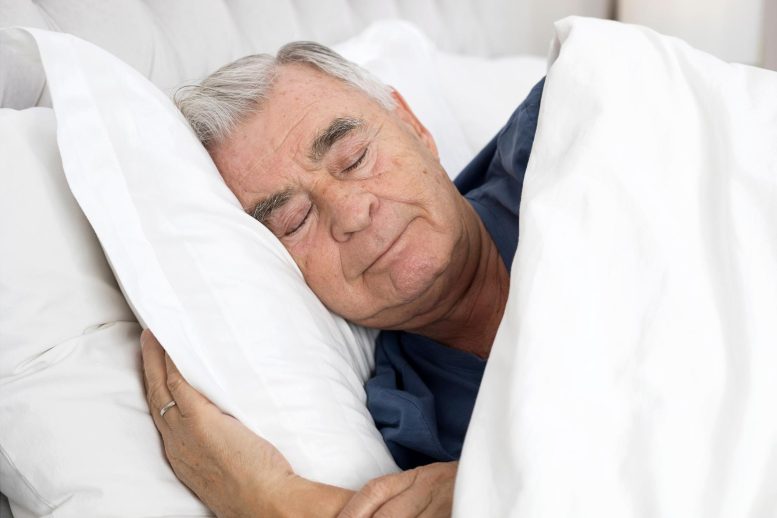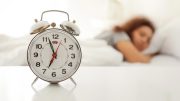
The researchers suggest that the cognitive function of older adults with prolonged sleep time should be monitored.
A new study analyzes how sleep duration and timing impact dementia risk.
The time individuals go to bed and how much sleep they get may increase their chance of getting dementia, according to a recent study that was published in the Journal of the American Geriatrics Society.
During an average follow-up of 3.7 years, 97 individuals in a study of 1,982 older adults in China who were dementia-free at the beginning of the study developed dementia.
The risk of dementia was 69% greater in those who slept for more than 8 hours (compared to 7-8 hours) and twice as high in those who went to bed before 9 p.m. (versus 10 PM or later).
“This suggests that cognitive function should be monitored in older adults who report prolonged 102time in bed and advanced sleep timing,” the authors wrote.
Reference: “Associations of sleep timing and time in bed with dementia and cognitive decline among Chinese older adults: A cohort study” by Rui Liu, MD, Yifei Ren, MD, Tingting Hou, MD, Ph.D., Xiaoyan Liang, MD, Yi Dong, MD, Yongxiang Wang, MD, Ph.D., Lin Cong, MD, Ph.D., Xiang Wang, MD, Ph.D., Yu Qin, MD, Juan Ren, MD, Shireen Sindi, Ph.D., Shi Tang, MD, PhD, Yifeng Du, MD, Ph.D. and Chengxuan Qiu, Ph.D., 21 September 2022, Journal of the American Geriatrics Society.
DOI: 10.1111/jgs.18042









Sleeping longer or going to bed early doesnt increase risk. That implies that sleeping more is causing dementia. Could be that people at risk for dementia are prone to sleeping more. Saying that it is “associated with” an increased incidence is a more accurate presentation. Excess sleeping may be predictive of higher risk of dementia, rather than causing it.
Did you really publish this silly piece? 97 people in China? Seriously? If you haven’t heard: no one is getting enough sleep; anywhere.
Exactly right, Dr. Dave. Long sleep duration usually reflects periods of sleep fragmentation and insomnia leading to sleep loos and increased sleep drive.
Agree, correlation is not causation. But it can be a warning sign because of the correlation.